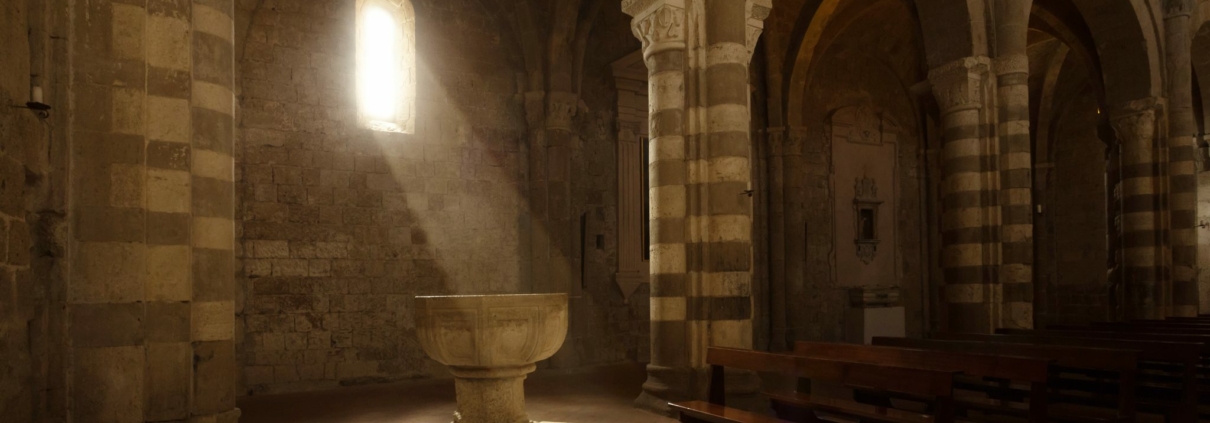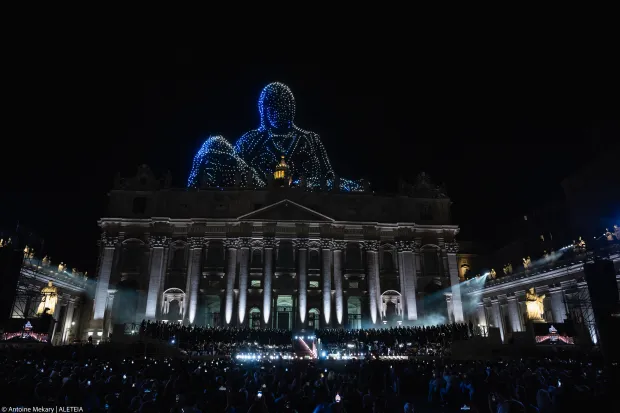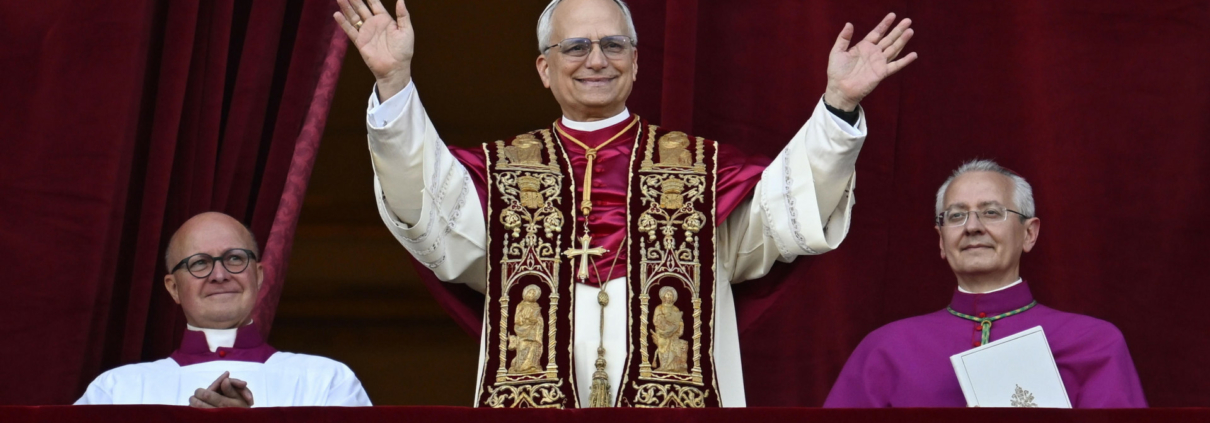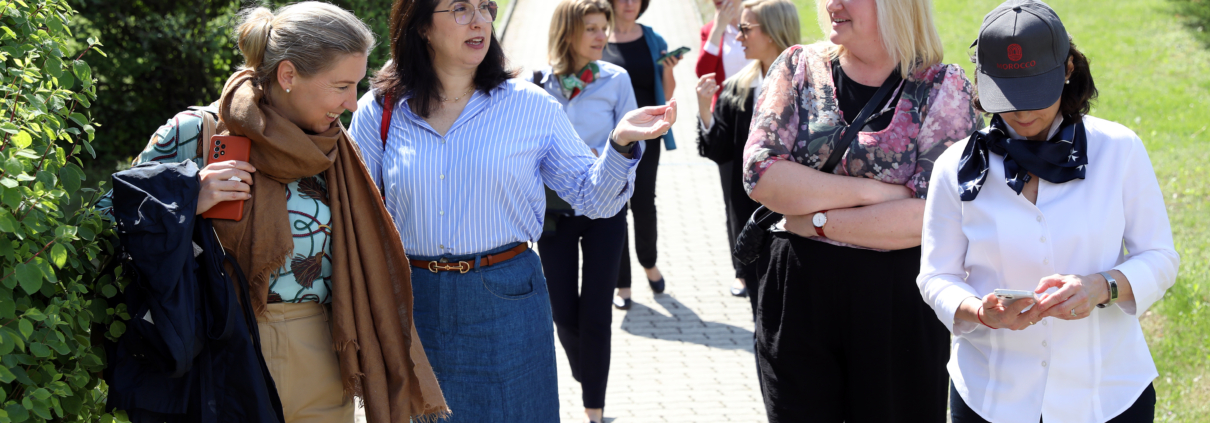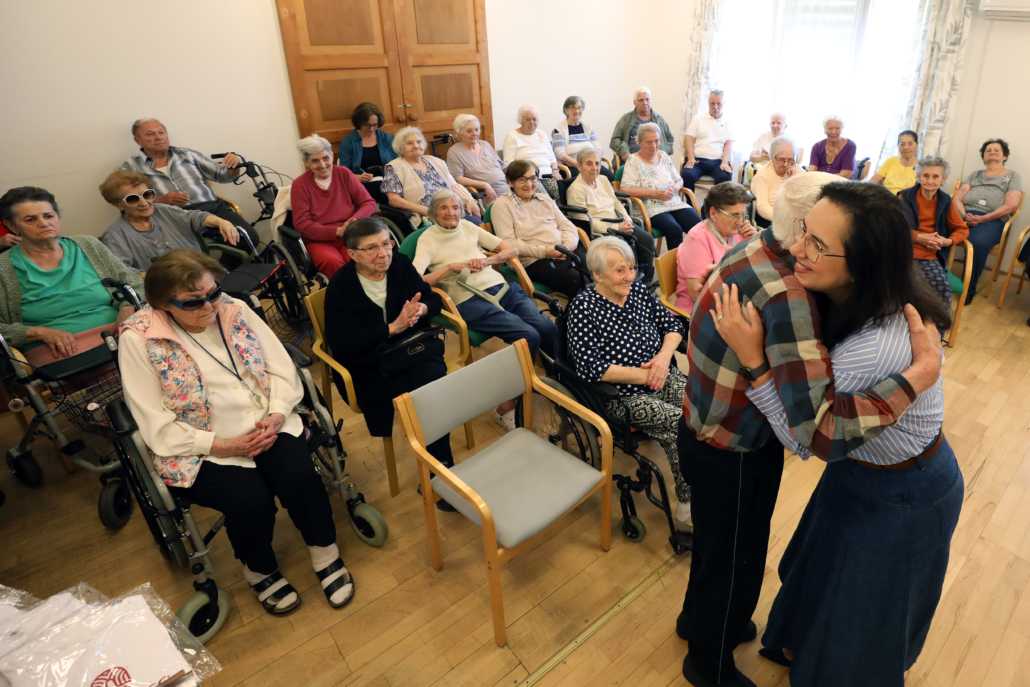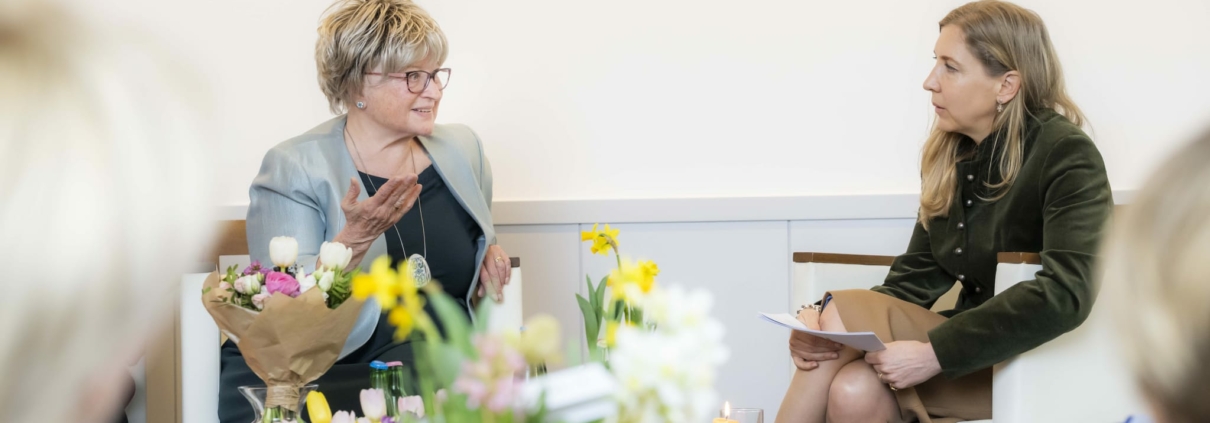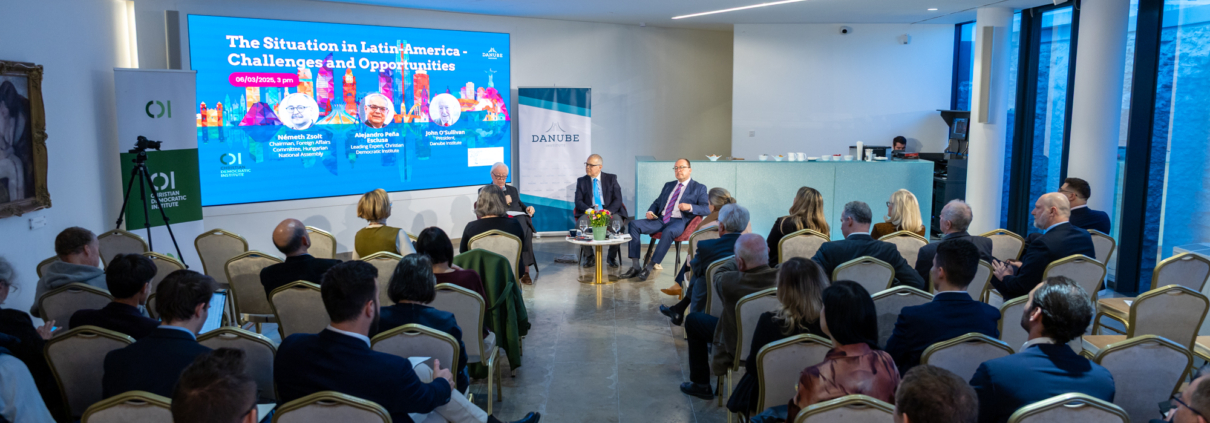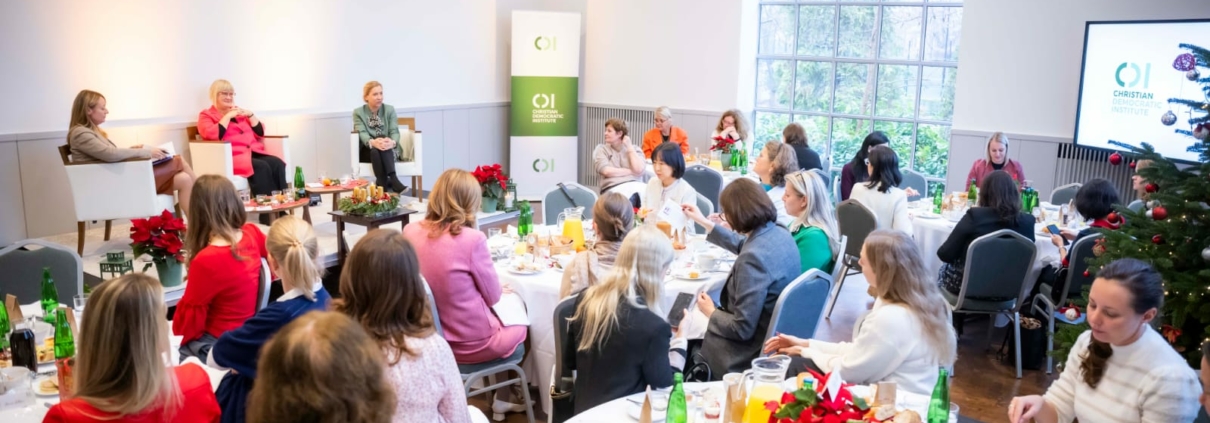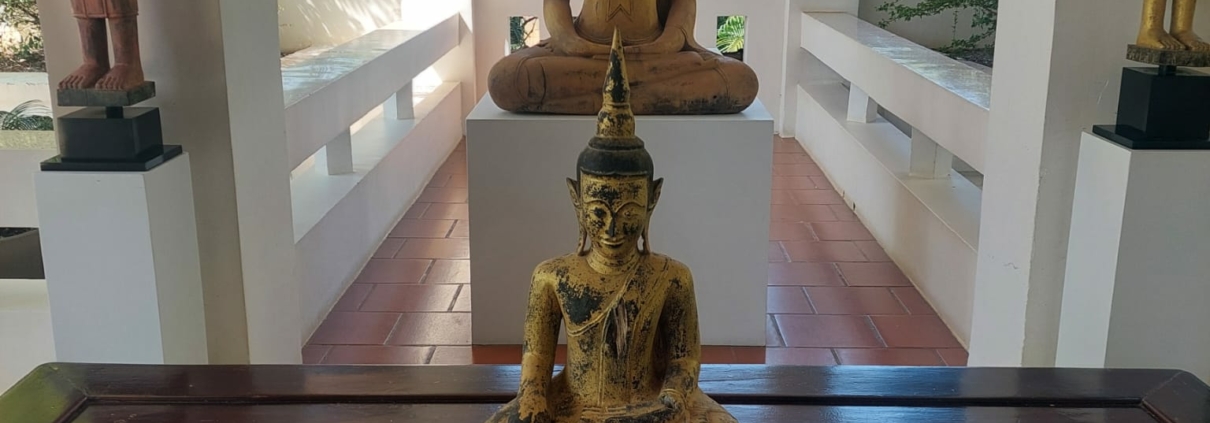21 October 2025
Lecture by Prof. Dr. Christian Alting von Geusau:
“Being a Christian and a Politician in Secular Europe”
I. Three Pillars
1. What does it mean to be a Christian?
2. What does it mean to be a politician?
3. How do these two meanings fit into secular society?
Why these basics?
There are a lot of misunderstandings and a lack of formation on these essential
questions amongst Christian politicians. Therefore, I have three questions for you:
– is your Christian faith a private affair or not?
– What is your highest duty as a politician?
– What is secularism? And how does it relate to communism?
II. In-depth analysis
1. What does it mean to be a Christian?
– A personal relationship with Christ, lived in community (= encounter)
– a life visibly rooted in the gospel, leading to both charity and clarity (= sign of
contradiction!)
– A life that is free from the world, but active in it (=freedom)
– > The Christian life always transcends itself and society. This is also the
reason why communist and other types of regimes hate it so much.
2. What does it mean to be a politician?
– To be a servant of the people command always seeking the common good
(not the good of just some)
– acting always in accordance with one’s well-formed conscience. This
conscience needs to be the result of ongoing education.
– Always protecting the sanctity of life and the dignity of every human being.
– > The daily to be sought balance between principle and compromise in
integrity.
“When statesman forsake their own private conscience for the sake of their
political responsibilities, they lead their country by a short route to chaos.”
(St. Thomas More, 1534)
3. How do these meanings fit into secular society?
– Catholic social teaching is the handbook.
Family (1), polity (2), church (3): these are the fundamentally important
division of competences that should be always understood and promoted by
the Christian politician. This is subsidiarity that leads to liberty.
– Unity of life of the Christian politician.
There is no difference between the public and the private in the person of the
politician.
– Building political friendships as a priority, refusing to dehumanise the other,
especially those that have a different political colour or opinion (Aristotle and
see ICLN lecture of Archbishop Salvatore Cordileone).
III. Conclusion
The Christian in politics is:
– rooted deeply in Christ and the Gospel; the sacramental life
– a servant leader
– who loves his/her people
– and constantly seeks encounter
– whilst defending human life and dignity always
– acting on a well-formed conscience, in constant education
– in friendship with colleagues, regardless of their political colour or opinions
– > This builds peace, my ICLN experience since 2010 proves this and it is also
the goal of all that we do.
Pope Leo XIV is the first American pope, formed by Chicago roots, missionary years in Peru, and the Augustinian spirit of unity. He carries himself with quiet strength, preferring to build harmony rather than chase headlines. His motto, In Illo uno unum — “In the one Christ we are one” — captures his identity: a pastor who insists that real unity comes only from Christ.
the Lord is with thee.
Blessed art thou amongst women
and blessed is the fruit of thy womb, Jesus.
Holy Mary, Mother of God,
pray for us sinners,
now and at the hour of our death.
Amen.
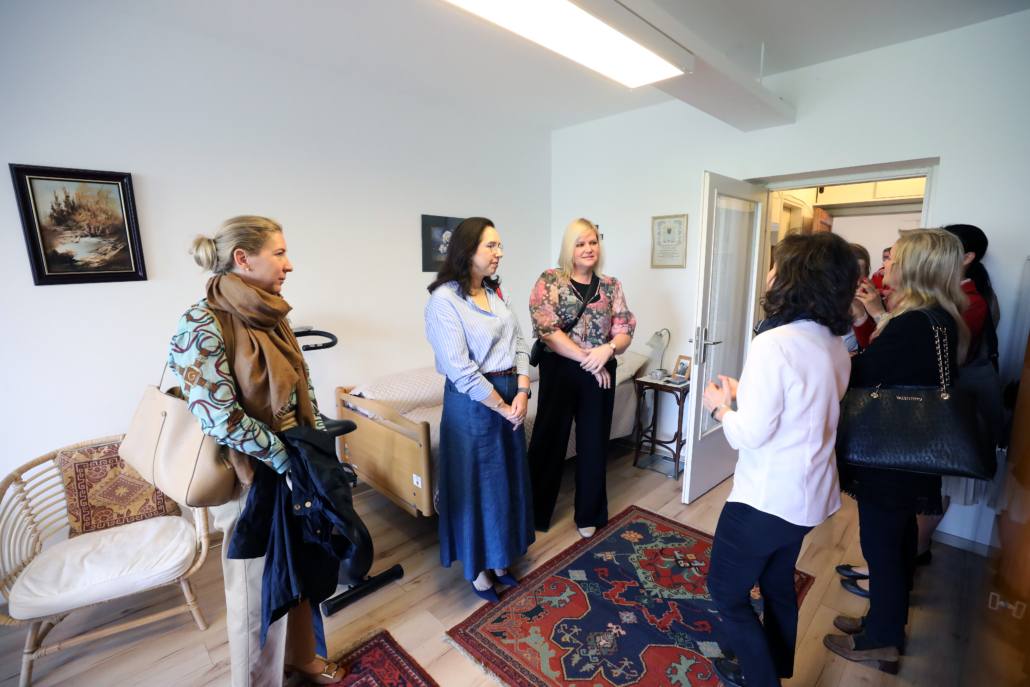
After the tour of the elderly home and the presentation on Morocco given to the elderly by H.E. Ambassador Karima Kabbay, we also visited the ceramic workshop of the disabled who are living in protected housing on the same premises next to the elderly home.
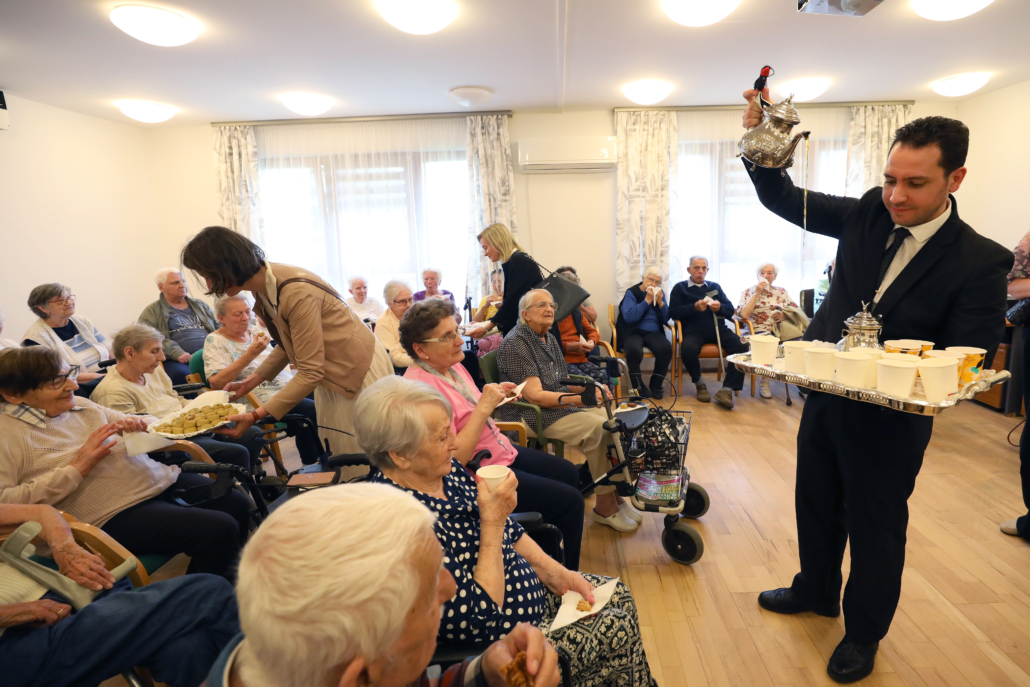
This excursion was a very touching and enriching experience and we thank H.E.Ambassador Karima Kabbay and all those who came with us for spending this memorable morning together with CDI at the eldery home of the charity service of the Order of Malta in Paty. We also thank Monika Hajdu, the director of the elderly home in Paty for her kind reception and heartfelt hospitality!
We very much look forward to our next activity within the framework of the Lady Ambassadors’ Charity Initiative – as it is just as Madam Zsuzsanna Nagy had pointed out during our last Conservative Ladies’ Breakfast: The rewards of getting engaged in charitable activities are plentiful for all involved.
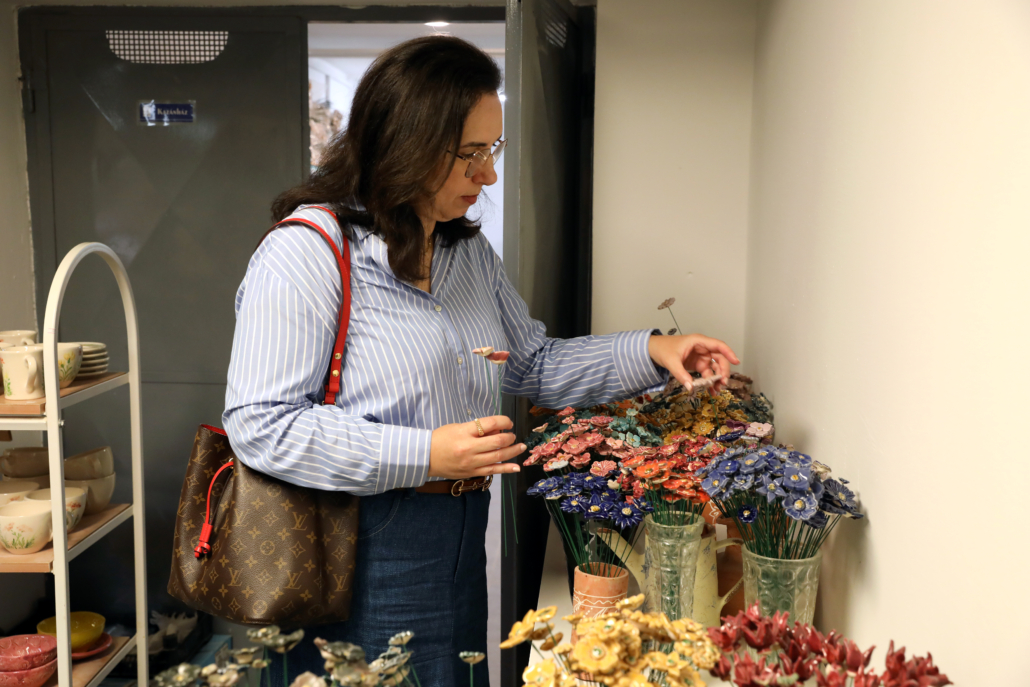
In a world where financial donations and large charity events often dominate conversations about philanthropy, a powerful message emerged from our latest Conservative Ladies’ Breakfast: true support goes beyond money and many times is happening rather quietly. It was an absolute honor and great pleasure to welcome H.E. Zsuzsanna Nagy, wife of the Hungarian President, Dr. Tamás Sulyok, as our distinguished guest to our 6th Conservative Ladies’ Breakfast. This inspiring event, organized in collaboration with the Foundation for a Civic Hungary, focused on the theme of volunteering and was titled “Helping Helpers.”
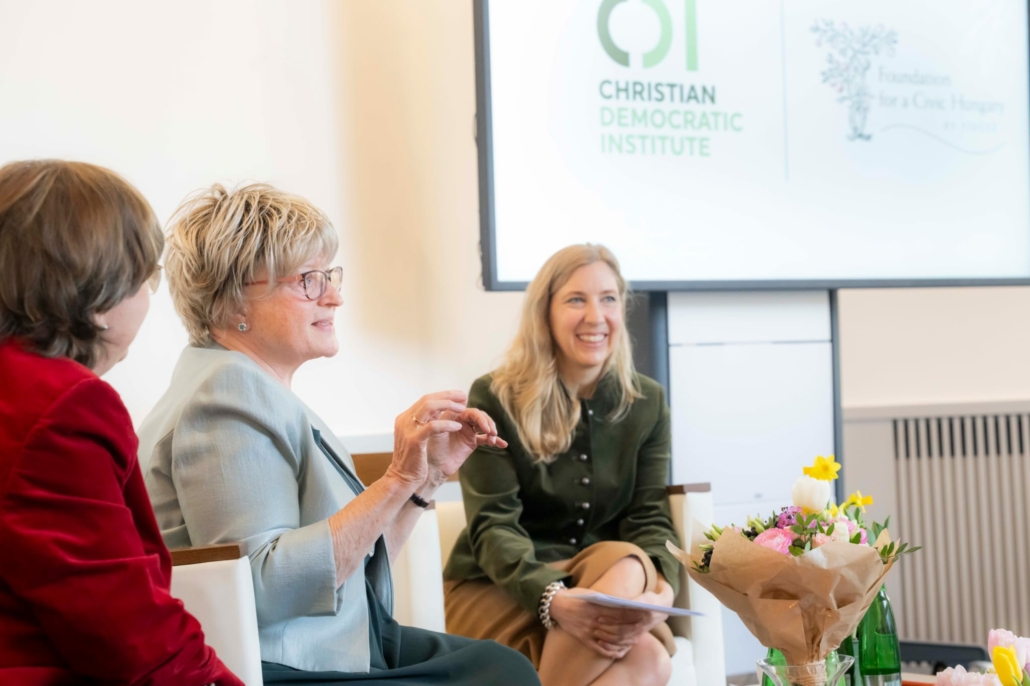
Gathering more than 40 accomplished women from diverse sectors – including several Ambassadors and high-ranking representatives from the public and private domain – the event provided an opportunity for meaningful discussion on the significance of volunteering and the necessity of supporting both professional and non-professional caretakers. As a mental hygienist and family therapist, Madam Zsuzsanna knows how great everyone’s need is for connection, acceptance, and listening. For the past two decades she has worked as mental health specialist and family therapist, a lot as a volunteer: in kindergardens, in child and adult psychiatry, and as a family supporter.
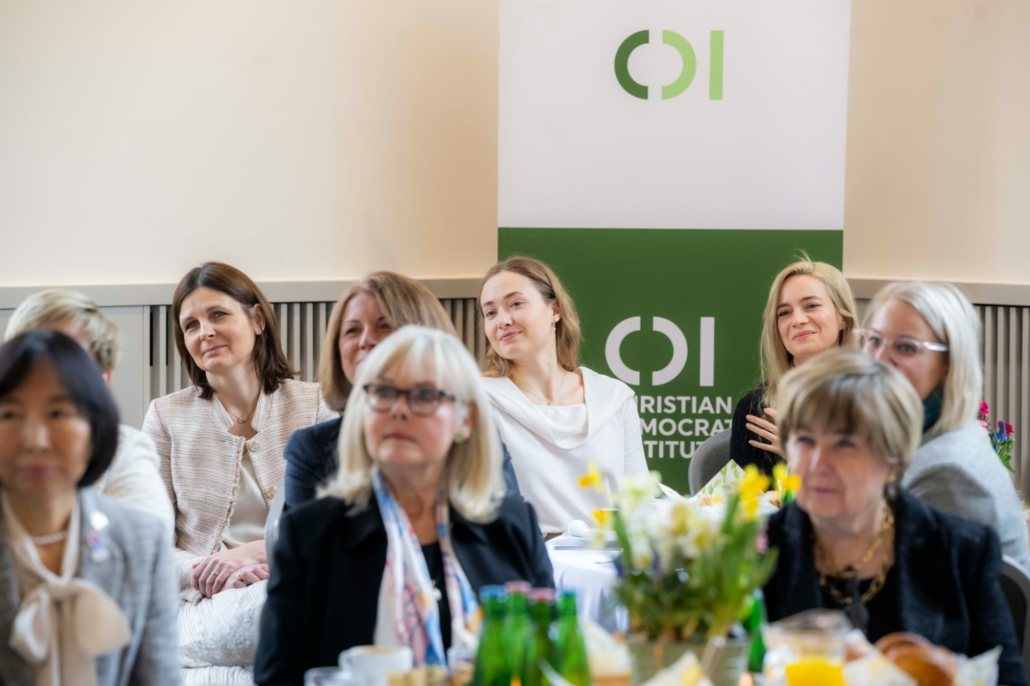
Madam Zsuzsanna passionately shared her insights on the importance of mental health protection, underscoring the essential role of those who dedicate themselves to caregiving. Whether they are trained professionals or individuals providing care out of love and duty, their well-being is often overlooked. As Hungary’s First Lady, Madam Zsuzsanna has made it a priority to advocate for these unsung heroes, emphasizing the need for community support and active engagement which go beyond financial contributions.
Her words struck a deep chord with the audience, sparking engaging conversations about the various possibilities and also the personal fulfillment that comes from offering one’s time and presence. The discussion reinforced a universal truth: while donations are valuable, it is the personal involvement, empathy, and dedication of individuals that create lasting change in the lives of those in need.
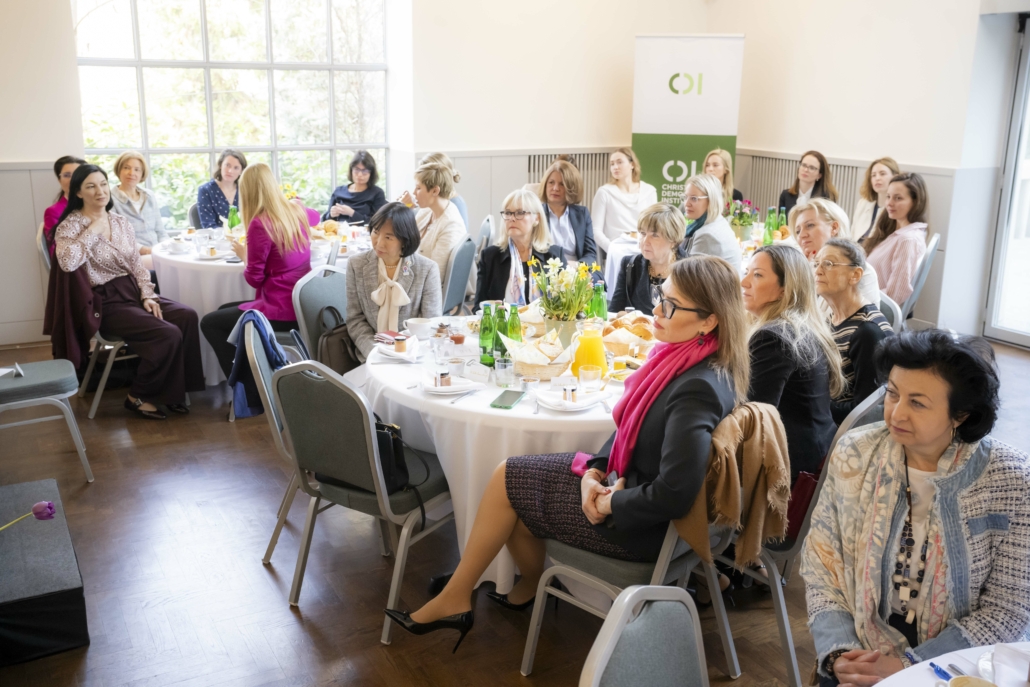
This event also aligns closely with the values and mission of CDI’s Lady Ambassadors’ Charity Initiative, which, in cooperation with the Hungarian Association of the Order of Malta, aims to facilitate regular visits to the institutions of the Hungarian Charity Service of the Order of Malta and to enable engagement in charitable activities therewith. Through such visits, the participants gather valuable insights and also show their appreciation and respect to those who dedicate their lives to caring for the most vulnerable – be it the elderly, the sick, or the poor. This collaboration reflects a profound commitment to hands-on humanitarian support, emphasizing the power of presence overmaterial assistance.

This breakfast was more than just an exchange of ideas and wonderful conversations – it was also a call to action as each one of us has the power to make a difference by being present, by listening, and by offering our time to those who need it most. Let’s not forget that true generosity is not measured in money but in the willingness to give a piece of ourselves to others.
We extend our heartfelt gratitude to H.E. Zsuzsanna Nagy for her inspiring words and unwavering commitment to this cause. And to all the remarkable women who attended, thank you for your dedication to making the world a more compassionate place – one act of kindness at a time.
This roundtable discussion organized in cooperation with the Danube Institute focused on the current political and social developments in the region, particularly on the role of the São Paulo Forum. The event’s keynote speaker was Alejandro Peña Esclusa, leading expert of the Christian Democratic Institute, who provided an in-depth analysis of the challenges Latin America is currently facing and needs to overcome.
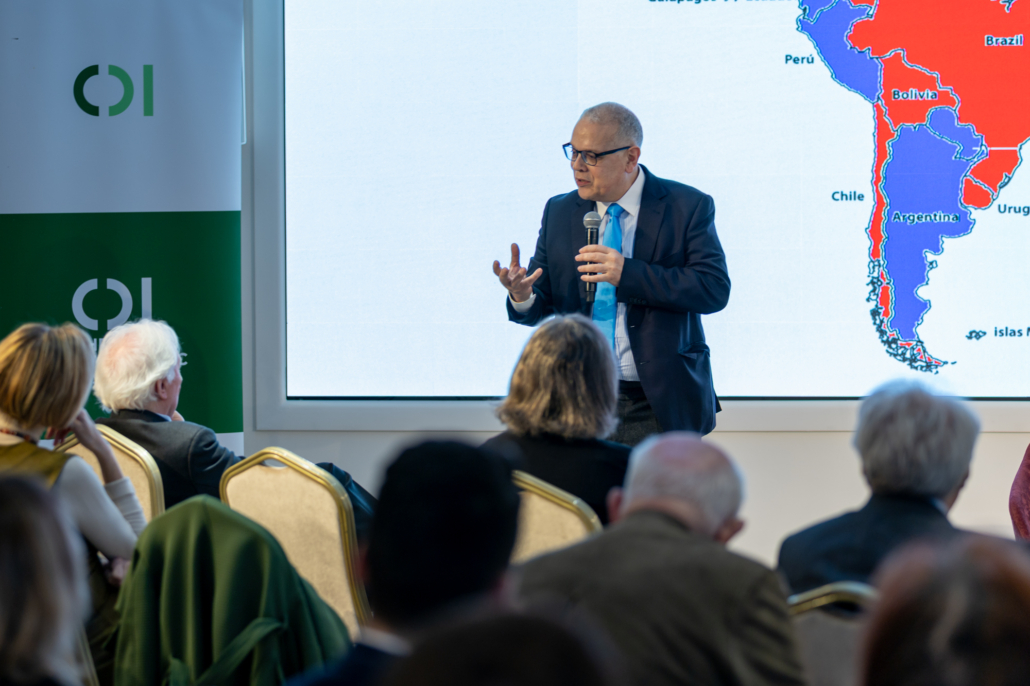
During his speech, Peña Esclusa emphasized that Latin Americans are growing increasingly disillusioned with socialist governments. He explained that left-wing leaders affiliated with the São Paulo Forum have deep connections to drug cartels that hold significant power over the region. Moreover, convicted criminals have also been among the members of the organization.
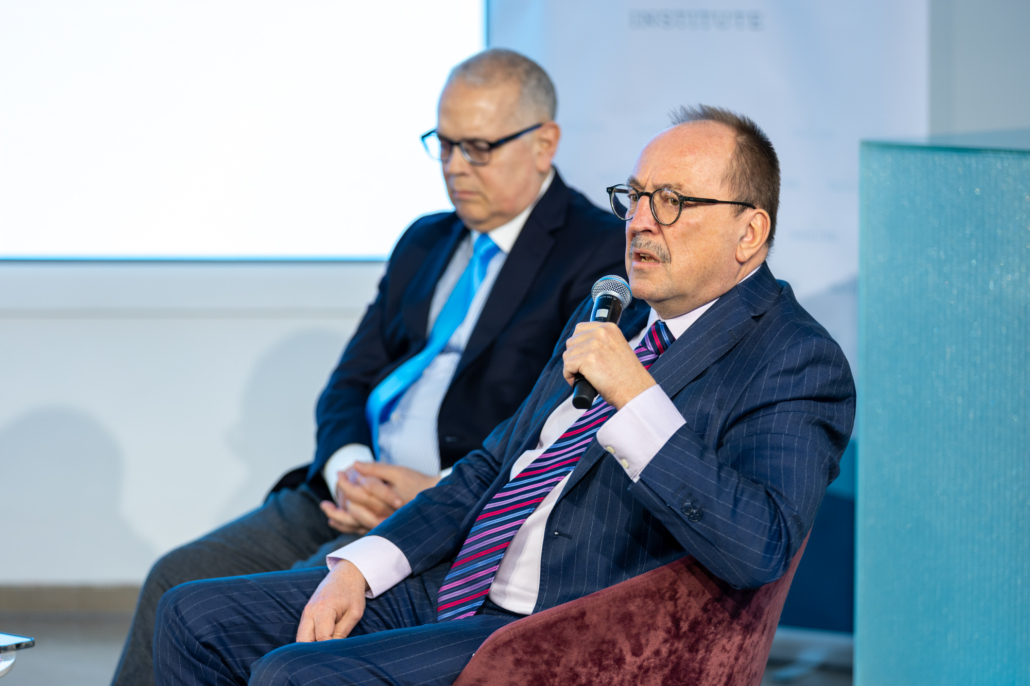
According to Peña Esclusa, the current struggle is not merely an ideological battle but a broader conflict in which defenders of democracy are fighting against organized crime. He also highlighted the importance of the U.S. decision under President Donald Trump to designate drug cartels as global terrorist organizations, a move that could play a crucial role in restoring stability to the region.
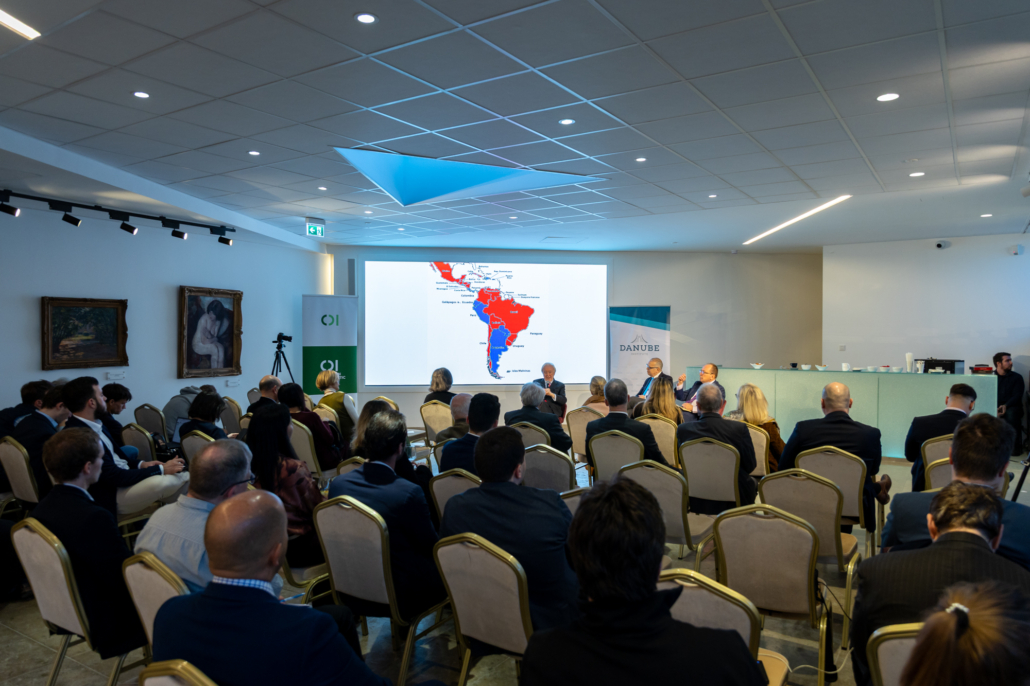
Our other guest was Zsolt Németh, Chairman of the Foreign Affairs Committee of the Hungarian Parliament, who noted that international political shifts, particularly in the United States, are creating new opportunities, for Hungary as well. He stated: “The Trump tornado fundamentally changes Hungary’s political maneuvering, allowing for much broader action.”
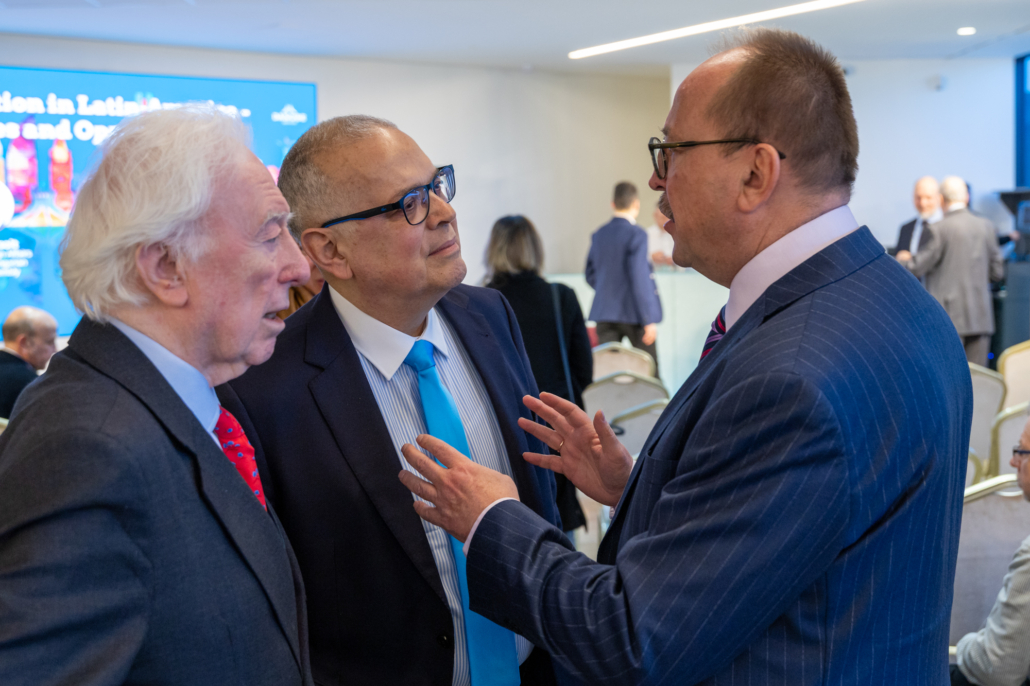
John O’Sullivan, President of the Danube Institute, who was our moderator and host as well as speaker warned that the São Paulo Forum is actively working to obstruct the national-conservative movements emerging in Latin America and elsewhere. He stressed the need for international organizations that can effectively respond and counter progressive leftist ideologies.
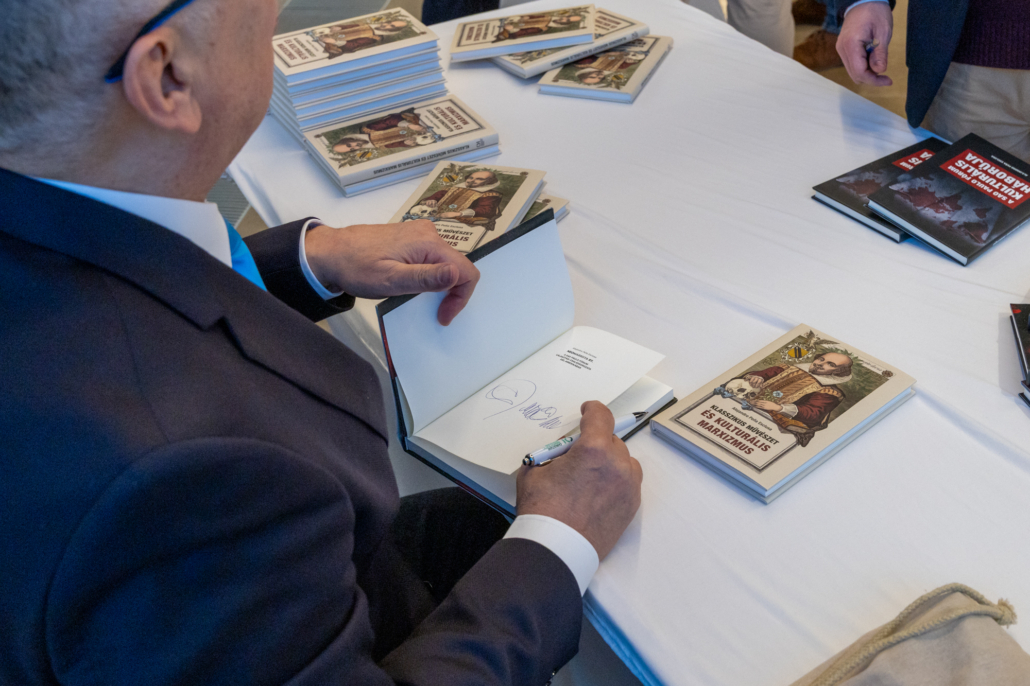
At the end of the event, Alejandro Peña Esclusa’s book, “Classical Art and Cultural Marxism,” was presented. The book explores the intersection of art and politics in modern societies, shedding light on the ideological battles shaping contemporary culture.
The roundtable discussion provided valuable insights into the political challenges facing Latin America, the role of the São Paulo Forum, and the required responses of conservative movements worldwide to these threats.
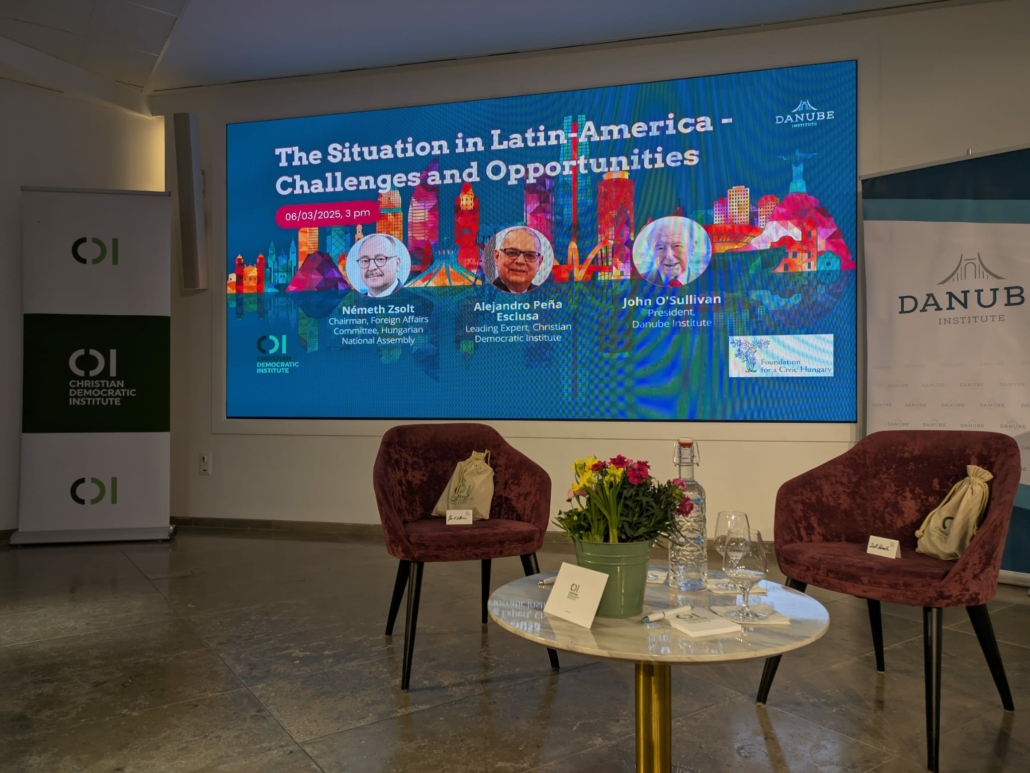
On the occasion of our 5th conservative ladies’ breakfast jointly organized by PMA and CDI, we were honoured to host Gál Kinga, MEP, First Vice-Chair of the Patriots for Europe Group and Vice- President of Patriots.eu party, and Bólya Boglárka, Ministerial Commissioner who genuinely shared their insights and thoughts on Hungary and the EU with us.
Executive Conference of Centrist Democrat International (IDC.CDI)
Kheang Un, P.D., Secretary of State, Ministry of Foreign Affairs and International Cooperation, Cambodia
Excellencies, Ladies and Gentlemen,
1. War has haunted mankind since time immemorial, causing destruction and suffering. As we speak, wars are raging in many parts of the world. In some instances, wars were waged believingly to end wars. Unfortunately, peace remained elusive. These conditions are partly because efforts to build and sustain peace were not cultivated in the young.
2. In these brief remarks, I will make three points. First, we need to know how to instill a culture of peace in our youth. Second, we need to promote inclusive and sustainable development for youth. Third, we need to promote cross-cultural understanding among youth.
3. In conflict societies, youth are involved in wars and violence, which, in many cases, are perpetuated in vicious cycles. Youth, therefore, should learn and then share best practices that can effectively end these vicious cycles. I want to share some recent Cambodian history with you—a valuable episode of history that teaches us how these cycles can end. The area we gather in today was—not long ago—a battleground between Khmers and Khmers. International intervention through the United Nations contributed to ending the protracted conflicts in Cambodia, but only partially. It was the vision of Former Prime Minister Samdech Techo Hun Sen that ended the war. His vision is that war cannot be finished by war. Only through negotiation and reconciliation can a lasting peace be achieved. Underpinning Prime Minister Hun Sen’s elegant vision is that negotiation and reconciliation must be anchored on a Win-Win principle that honors former adversaries’ dignity, property, liberty, and status.
4. The Cambodian government instills the values of peace, reconciliation, and tolerance in its youth. The Cambodian government designated May 20th as a day of remembrance of the darkest period of Cambodia’s history, during which the Khmer Rouge destroyed the foundation of the society and killed over 2 million Cambodians. The government constructed stupas in memory of those who had perished. This is a reminder to Cambodian youth that we can forgive the perpetrators, but we should not forget the enormity of the suffering and destruction Cambodia has endured. The government also constructed the Win-Win Monument, inscribing the history of negotiation and reconciliation that led to eventual peace in Cambodia.
5. Throughout history, we learn that our forebearers and our contemporary fellows uttered the burning desire that war should not occur. Yet, it did! In all cases, youth participated in wars; however, they are also victims of wars. The causes of war are many. War originates from scarcity, unequal resource access, and lack of economic opportunities. These factors accumulate, resulting in hopelessness. These are the root causes of conflict. Therefore, the government must promote positive peace by pushing Sustainable Development Goals to reduce poverty, inequality, and environmental degradation. Youth can help alleviate these root causes. For example, the Union of Youth Federation of Cambodia contributes doctors to fight the spread of COVID-19, promotes E-learning, partners with businesses to promote vocational training and employment opportunities, and undertakes systematic land registration.
6. Peace on earth can be achieved only when there is peaceful coexistence among nations. Peaceful coexistence occurs only when the youth of different countries understand each other’s values, priorities, and interests. Lack of such understanding often leads to misperceptions that, in turn, foster mistrust and hatred, which are sources of conflicts. Such
mutual understanding can be promoted by exchanging visits by youth to each other’s countries. These visits should also be accompanied by activities that foster mutual understanding. As we gather here, some forces are attempting to deglobalize. Youth exchanges and related activities will create a counterforce to this deglobalization pulse. With their awareness of the shortcomings of current globalization, the youth will mold globalization into an inclusive and future-focused one.
7. A Khmer proverb says, “Bamboo shoots cherish bamboo.” Similarly, youth cherish humanity. Another Khmer proverb says, “To live is to hope.” In this context, when we have hope in our youth, we will live confidently that our children and grandchildren will inherit our planet and help transform it into a more harmonious one.
8. Thank you for your kind attention.
Dr. Christiaan Alting von Geusau is the Co-Chair of the Christian Democratic Institute’s Advisory Board, leads the International Catholic Legislators Network (ICLN), which he founded in 2010 to provide Christian politicians with faith formation, education and networking opportunities. He is the founder and principal of Ambrose Advice e.U., a company that provides strategic advisory and leadership coaching to senior public office holders around the world. Dr. von Geusau is Rector emeritus and Professor for Philosophy of Law and Education at ITI Catholic University in Austria and honorary Professor of Law at the Universidad San Ignacio de Loyola in Peru.
